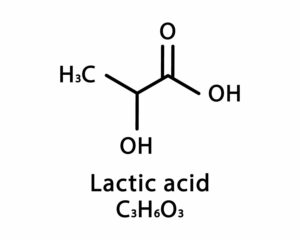Malolactic fermentation is a natural biochemical process in which malic acid is converted into lactic acid. This process is often used in winemaking to produce wines with a softer acidity and rounder flavor.
 BSA usually takes place after alcoholic fermentation and is carried out by lactic acid bacteria such as Lactobacillus called “Oenococcus oeni” and Pediococcus. During BSA, the bacteria convert the malic acid contained in the must or wine into lactic acid. This leads to an increase in the pH in the wine, which in turn helps to inhibit the growth of undesirable bacteria and yeasts and makes the wine more stable.
BSA usually takes place after alcoholic fermentation and is carried out by lactic acid bacteria such as Lactobacillus called “Oenococcus oeni” and Pediococcus. During BSA, the bacteria convert the malic acid contained in the must or wine into lactic acid. This leads to an increase in the pH in the wine, which in turn helps to inhibit the growth of undesirable bacteria and yeasts and makes the wine more stable.
Malolactic fermentation is crucial in the production of some wines, such as Chardonnay and Pinot Noir, to achieve the desired taste and texture. The result is a wine with a creamy, almost oil-like texture in the middle of your tongue, giving the wine a wonderful, velvety texture.

Leave A Comment